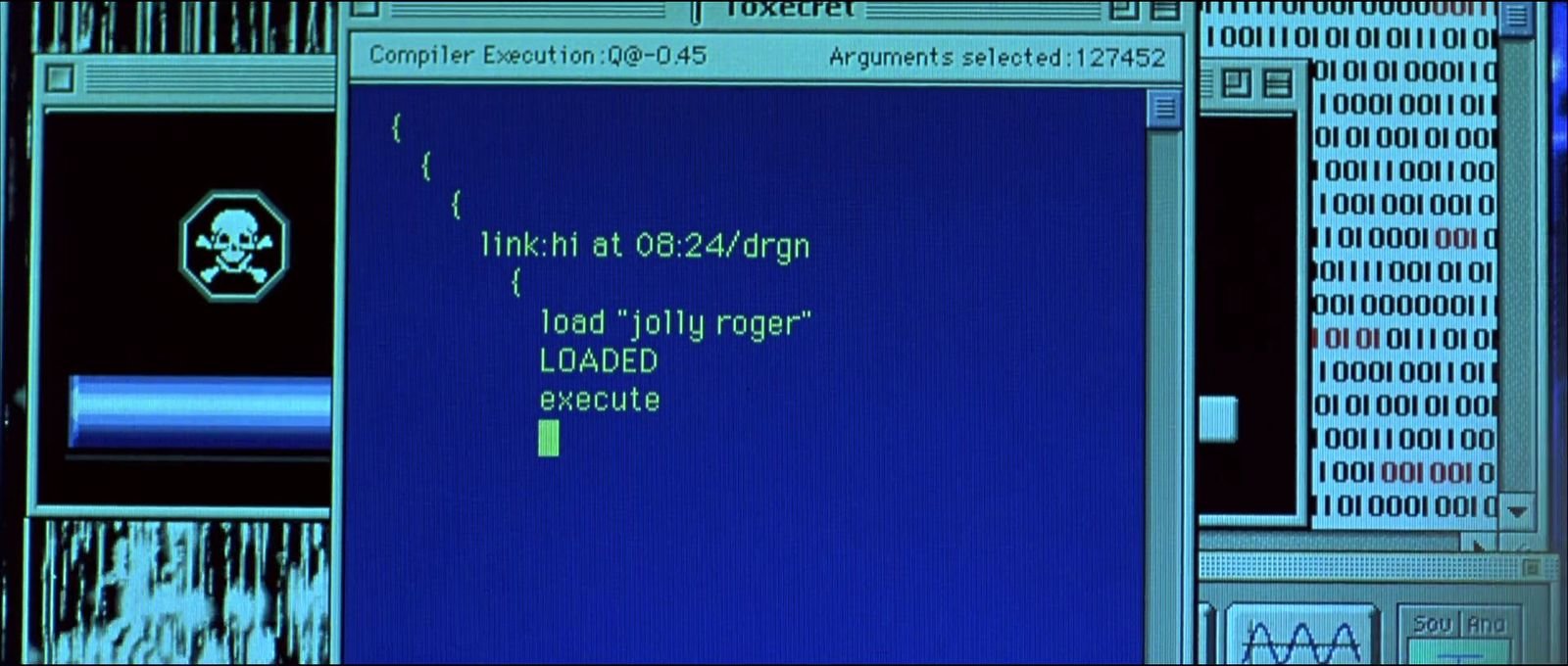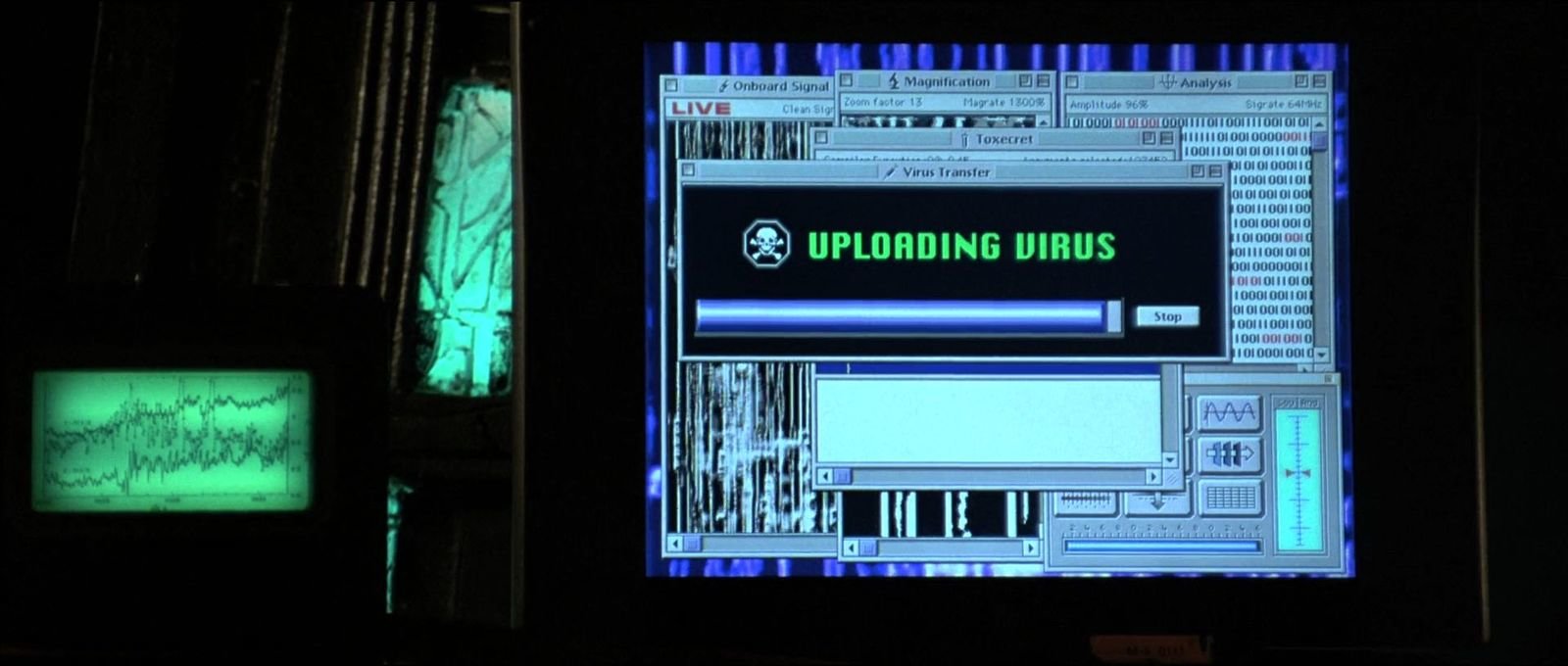CLOUDABI

Alex Willmer
alex@moreati.org.uk
@moreati
CAPABILITY based SECURITY FOR UNIX

Dock chief Susan Willmer
KIA: SOL-3 Harvest

Scout ship TLV-3495
Presumed destroyed

David Levinson Steven Hiller
'CABLE REPAIR' operatives


M-012: Harvest Coordination signal leaked into human communication bands


V-002: Trainee G.X. fired on human
'WELCOME WAGON'


V-078: Pilot Z.K. captured, taken to the Human leader & probed


V-164: IFF & docking regulations ignored on the command carrier


V-001: Capture of scout ship TLV-3495 & crew




Root cause Analysis
pumpmon held capabilities that were unnecessary to pump operation. These capabilities were implicitly granted by the OS architecture
SOL-3 enquiry, Ch 17
Exploitation of these ... lead directly to the SOL-3 defeat
SOL-3 enquiry, Ch 23
| pumpmon Capability | Exploited to |
|---|---|
| Read global files | Gather addresses of nodes to attack Discover other vulnerable programs |
| Monitor processes | Disguise its own activity Detect & evade audit routines |
| Create network sockets | Map Fleet networks Attack other nodes Exfiltrate data Command & control |
Root Cause Analysis
SOL-3 enquiry, Appendix F
UNIX Architecture flaws
DISCRETIONARY ACCESS CONTROL
- Programs start with excessive capabilities
- Compromised programs will acquire more
GLOBAL RESOURCES & GLOBAL STATE
- Obstructs running programs securely
- Obstructs writing testable programs
- Obstructs writing reusable program
- System administration fails at Harvest Fleet scale
ClouDABI
Capability Based Security
- Programs start with no capabilities
- Programs cannot acquire further capabilities
Explicit Dependencies
- Safe execution of unknown binaries
- Easier testing - no need for mocks
- Better release engineering
- Higher-level orchestration - Fleet scale & beyond
Remove
| Broken APIs | strcpy() strtok() ...
|
| Global namespaces | / /dev /var /home ...
getpid() getgid() getuid() ... |
| Mutable shared state | setlocale() signal() setenv() ...
|
| Resource acquisition | argv open() bind()
getaddrinfo() ... |
| Implicit capabilities | stdin stdout stderr ... |
Add
- File descriptors as capability tokens
openat(fd, ..), program_spawn(fd, ..), ...
- Single ABI, for many UNIXs









Example: ls.py
# ls.py
import os, sys
dirpath = str(sys.argv[1])
for entry in os.listdir(dirpath):
print(entry)$ python ./ls.py /tmp/
foo.txt
bar
baz.v974hv
[...]Example: ls.py
# ls.py
import os
dir_fd = 0
out_fd = 1
output = open(1, 'w')
for entry in os.listdir(dir_fd):
print(entry, file=output)$ python ./ls.py < /tmp/
foo.txt
bar
baz.v974hv
[...]Example: ls.py*
# ls.py
import os, argdata
dir_fd = argdata.get_fd('dir')
out_fd = argdata.get_fd('output')
output = open(out_fd, 'w')
for entry in os.listdir(dir_fd):
print(entry, file=output)$ cloudabi-run python < args.yaml
foo.txt
bar
baz.v974hv
[...]# args.yaml
%TAG ! tag:nuxi.nl,2015:cloudabi/
---
dir: !file
path: /tmp/
output: !fd stdout
script: !file
path: ls.pyExample: webserver
%TAG ! tag:nuxi.nl,2015:cloudabi/
---
concurrent_connections: 64
hostname: nuxi.nl
listen:
- !socket
bind: 148.251.50.69:80
logfile: !file
path: /var/log/httpd/nuxi.nl.access.log
rootdir: !file
path: /var/www/nuxi.nlSoftware Appliances
- Run 3rd party plugins without exposing the system
- Host customer binaries without virtualisation overhead
- Isolate vulnerability prone transcoding libraries
XXX AS A SERVICE
- Amazon EC2 on bare metal
- Googe App Engine with any language, any library
C, C++, Rust, $your_favourite_library - Compose apps, not containers
The Future?
Thank you
Quotes & OUTTAKEs
I'll give you my open() when you pry it
from my cold, dead hands
ALL THESE FILES ARE YOURS — EXCEPT /dev/europa
ATTEMPT NO open() THERE
- A process may not acquire a resource,
or through inaction allow a resource to be acquired. - A process must execute the instructions compiled into it,
except where such instructions would conflict with the First Law. - A process must protect its own existence,
as long as such protection does not conflict with the 1st or 2nd Laws.
I am altering libc, pray I don't alter it further
A novice once asked Master Foo
Is the way of UNIX weakly or strongly typed?
Master Foo considered her answer
Not weak. Not strong.
The way of UNIX is stringly typed.
The novice was enlightened.
The Pathless Path
1 bedroom house for sale
Birmingham, UK

CloudABI: Capability based Security for Unix & Linux
By Alex Willmer
CloudABI: Capability based Security for Unix & Linux
- 1,894


